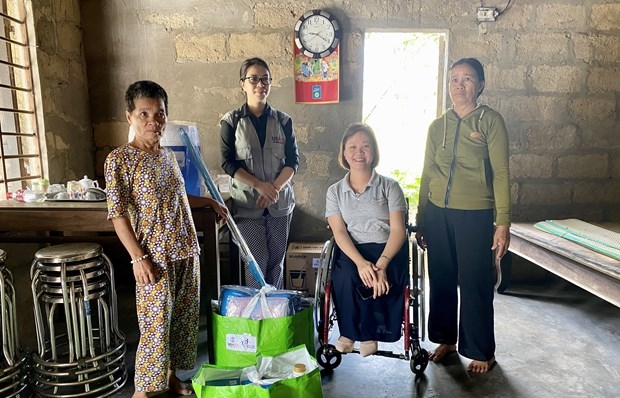Vietnam partners with USAID to implement new strategy to end TB
 |
| The event on December 15 |
Double X is a new strategy to diagnose TB using chest X-rays and GeneXpert, a diagnostic method that detects TB bacteria.
At an event entitled “Health Partnerships to End TB in Vietnam – Applying the 'Double X' Strategy" on December 15, participants shared key achievements and lessons in implementing the strategy, including key achievements of the NTP toward TB ending goals; outcomes from USAID Sustainable HIV and TB Responses from Technical Assistance (SHIFT) activity on the Double-X Strategy in seven provinces; experiences from provincial TB programme; and multi-faceted TB strategies using Double X from international organisations.
The event had the participation of US Deputy Chief of Mission to Vietnam Christopher Klein, Deputy Minister of Health Do Xuan Tuyen, USAID Mission Director Ann Marie Yastishock, NTP Manager Associate Professor Nguyen Viet Nhung, and representatives from the NTP, the National Lung Hospital, USAID, provincial TB programmes, and international organisations.
Vietnam ranks 11th among the 30 countries that account for nearly 90 per cent of the world’s TB burden. It is also one of the most common communicable diseases in the country. Vietnam has made significant progress in its political commitment to end TB by 2030, with the formation of the Commission to End TB in December 2019. However, each year, it is estimated that 170,000 people become sick from TB in Vietnam, but only around 100,000 are accounted for in the National TB system, leaving around 50,000 community TB cases undiagnosed, and the remaining 20,000 diagnosed but not reported.
Ending the TB epidemic in Vietnam will require intensive effort. The USAID SHIFT project’s partnership with the NTP has piloted the comprehensive Double X Strategy in health facilities and communities in 18 districts in seven provinces of Thai Binh, Nghe An, An Giang, Can Tho, Dong Nai, Tay Ninh, and Tien Giang.
Double X will be further scaled up to 25 provinces in December 2020. Sites for implementation will include provincial hospitals (lung hospitals, general hospitals) as well as district health centres and general hospitals.
What the stars mean:
★ Poor ★ ★ Promising ★★★ Good ★★★★ Very good ★★★★★ Exceptional
 Tag:
Tag:
Themes: Healthcare Platform
- PM outlines new tasks for healthcare sector
- Opella and Long Chau join forces to enhance digestive and bone health
- Hanoi intensifies airport monitoring amid Nipah disease risks
- Cosmetics rules set for overhaul under draft decree
- Policy obstacles being addressed in drug licensing and renewal
Related Contents
Latest News
More News
- Hanoi intensifies airport monitoring amid Nipah disease risks (January 29, 2026 | 15:21)
- 14th National Party Congress wraps up with success (January 25, 2026 | 09:49)
- Congratulations from VFF Central Committee's int’l partners to 14th National Party Congress (January 25, 2026 | 09:46)
- List of newly-elected members of 14th Political Bureau announced (January 23, 2026 | 16:27)
- 14th Party Central Committee unanimously elects To Lam as General Secretary (January 23, 2026 | 16:22)
- List of members of 14th Party Central Committee announced (January 23, 2026 | 09:12)
- Highlights of fourth working day of 14th National Party Congress (January 23, 2026 | 09:06)
- Press provides timely, accurate coverage of 14th National Party Congress (January 22, 2026 | 09:49)
- Press release on second working day of 14th National Party Congress (January 22, 2026 | 09:19)
- Minister sets out key directions to promote intrinsic strength of Vietnamese culture (January 22, 2026 | 09:16)































 Mobile Version
Mobile Version